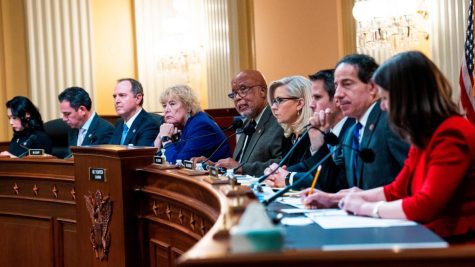Coming to Understand and Appreciate the Value of Educational Opportunity
Almost every morning, Monday through Friday, for the past twelve years I’ve gotten up bright and early, just like virtually every other child growing up in the western world. Why? To go to school. To get an education. Of course.
Some students might say that they’re forced to attend as part of our compulsory education system in the US.
Some might say that they want to go in order to ensure getting a better job.
Regardless of students’ feelings towards the institution, most would agree that it is a necessary evil; they would dismiss it as a rite of passage – merely something that everyone works their way through in one fashion or another.
Little do most of us consider that millions of young people, not unlike ourselves, aren’t so lucky as to have their mothers drag them out of bed at 6am in order for them to catch the morning school bus. This isn’t a joke.
Sixty two million girls worldwide are not currently enrolled in school.
In my personal experience in school, I’ve made some of my closest friends. I’ve learned not only curriculum but real-life lessons. I’ve discovered the value of hard work, been taught how to question uncertainties, expanded my view of the world and increased my understanding of the many problems that the world faces.
Sixty two million girls don’t have those opportunities.
Across the world, young women are barred from a proper education by physical, cultural, and financial barriers.
The reality for girls in many largely rural, undeveloped countries is that the nearest school is miles away. They lack adequate transportation to make such a commute safely.
Likewise, cultural strictures prevent young women from becoming educated in areas where females are traditionally perceived as subservient and unworthy of an education.
For example, educating females is not illegal in Pakistan; however, educating females is militantly forbidden by the Taliban. This terrorist regime has a history of violently punishing women who seek schooling with brutal acts like execution and acid burnings, which is enough to deter most women from pursuing an education.
Societal conventions like the time of marriage and having children also dictate the amount of schooling a woman receives, and in areas in Africa and Southeast Asia where child brides are not uncommon, girls are significantly less educated.
By denying these individuals a right to education, one denies their autonomy in an increasingly information-driven global community.
Education is a fundamental human right. The right to be literate, to communicate, to form intelligent ideas and share one’s perspective are integral to the human experience. Keeping millions of women in the dark and incapacitating their potential not only robs them of a life they deserve but foolishly forgoes the infinite creativity and insight that they may possess.
The returns on an investment into an education are virtually limitless.
In addition, to contribute more to her society, an educated woman will be healthier – less likely to contract HIV and other diseases – and will raise a healthier family (should she choose to have one).
Not only is this a moral issue, it’s an economic one.
According to the United States Agency for International Development (USAID), one additional year of secondary school can increase a woman’s future earnings by 10-20%. By providing young women with the necessary education, they are not only profiting themselves, but also enriching their countries’ workforces and, subsequently, their gross domestic product (GDP).
In India, the USAID reports that if just one more percent more of girls are enrolled in a secondary education, the country’s GDP would grow by $5.5 billion dollars.
Knowing that there are 62 million girls out there that aren’t as fortunate as I am adds considerable perspective.
In May, two months from now, when I get to walk across the stage at graduation to receive my high school diploma, I will know that many young women can only dream of doing the same. So, I feel as though I owe it to them to not callously overlook the privilege I have been afforded and to never take my education for granted.















